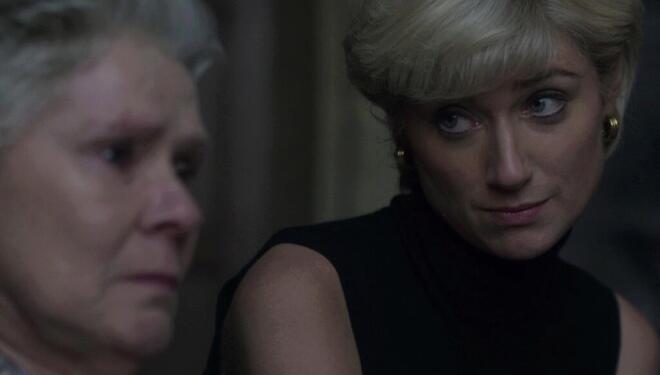
Doesn’t this undeniably biased yet fascinating docuseries just fuel the ‘Outrage Industrial Complex’, to which the historian David Olusoga refers? Perhaps, but at least their personal issues are provided a consciousness that cannot be avoided – shifting the conversation, if only momentarily, from fabrication and towards some semblance of truth. But it’s debatable how true that truth is, and will differ depending on what paper you read.
These latter episodes are less academic, with Olusoga and Afua Hirsch popping up like moreish cameos. Instead, you plunge into Harry and Meghan’s mental strains after the royal wedding and the birth of their first child Archie (the racial allegations made on the Oprah interview are left strangely unaddressed).
After these ostensibly delightful days, the couple resumes the neverending nightmare of the British media – escaping to Vancouver Island before moving in with Tyler Perry in Los Angeles after their security provision is removed. They sue the Mail on Sunday for publishing a private letter to Meghan’s father, and the stress from the lawsuit (she claims) caused a miscarriage. Talking about her time in the thick of royal duties and being despised by the tabloids, Meghan also reveals that she contemplated suicide (‘all of this would stop if I’m not here’).
With the added weight of trolls and death threats, the clickbait seemed to govern the royal family's actions – encouraging the suppression of Meghan. By himself, Harry tries to negotiate compromises between extremes from which his father and brother wouldn’t budge. You begin to see the confluence of ‘the family’ and the ‘Family Business’, as Meghan elaborates – similar to how Peter Morgan sees ‘The System’ in The Crown.
On top of that, the couple feels isolated in their pain. To a degree, it’s understandable. What could these extremely privileged people be upset about, considering their scenic homes, beautiful views, and expensive handbags? When Meghan talks about her ‘sacrifice’ and Harry talks about a ‘normal’ life, it’s difficult for us dregs to sympathise wholeheartedly.
And yet, when identity, freedom and privacy are shattered in favour of a thousand-year regime clinging to power, it’s difficult not to feel for them (unless you’re intent on doing the opposite). Worse still, you mourn what could have been. Imagine if Harry and Meghan were comfortable enough to stay: what strides they might’ve made within the monarchy. Hirsch calls their departure ‘the death of a dream’, a flattened fairytale of diversity and evolution. They could’ve shown a more courageous and forward-thinking Britain, one that openly learns from a questionable history.
As emphasised in the review for part one, it’s best not to take everything Harry and Meghan say as gospel – nor should they be treated with blind idolatry. However, the series reminds you of the potential they symbolised. Will the Family Business ever find a jewel as bright as Meghan once was?
Harry & Meghan is available to watch on Netflix.
| What | Harry and Meghan part 2, Netflix review (episodes 4–6) |
| When |
15 Dec 22 – 15 Dec 23, ON NETFLIX |
| Price | £n/a |
| Website | Click here for more information |






